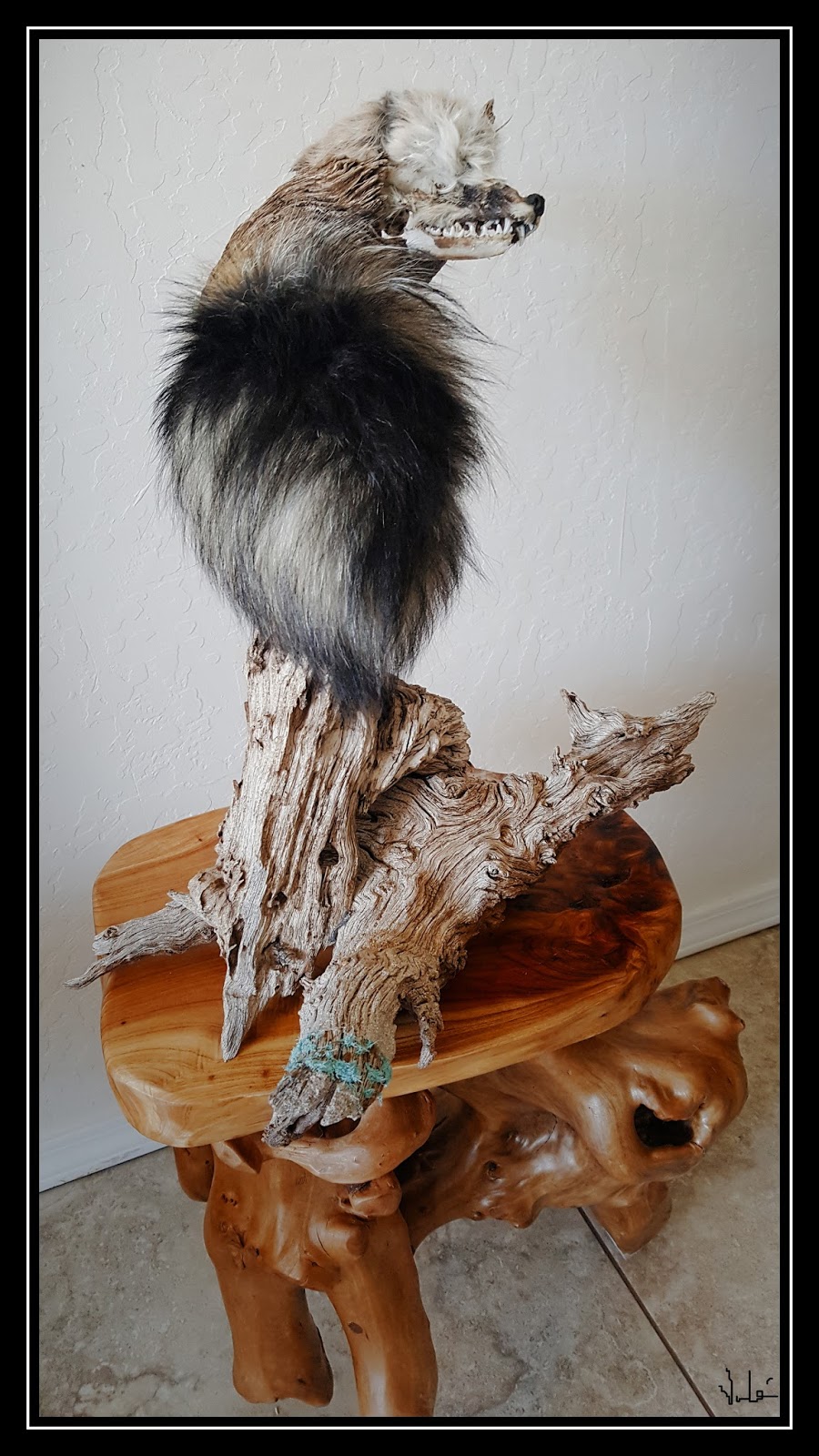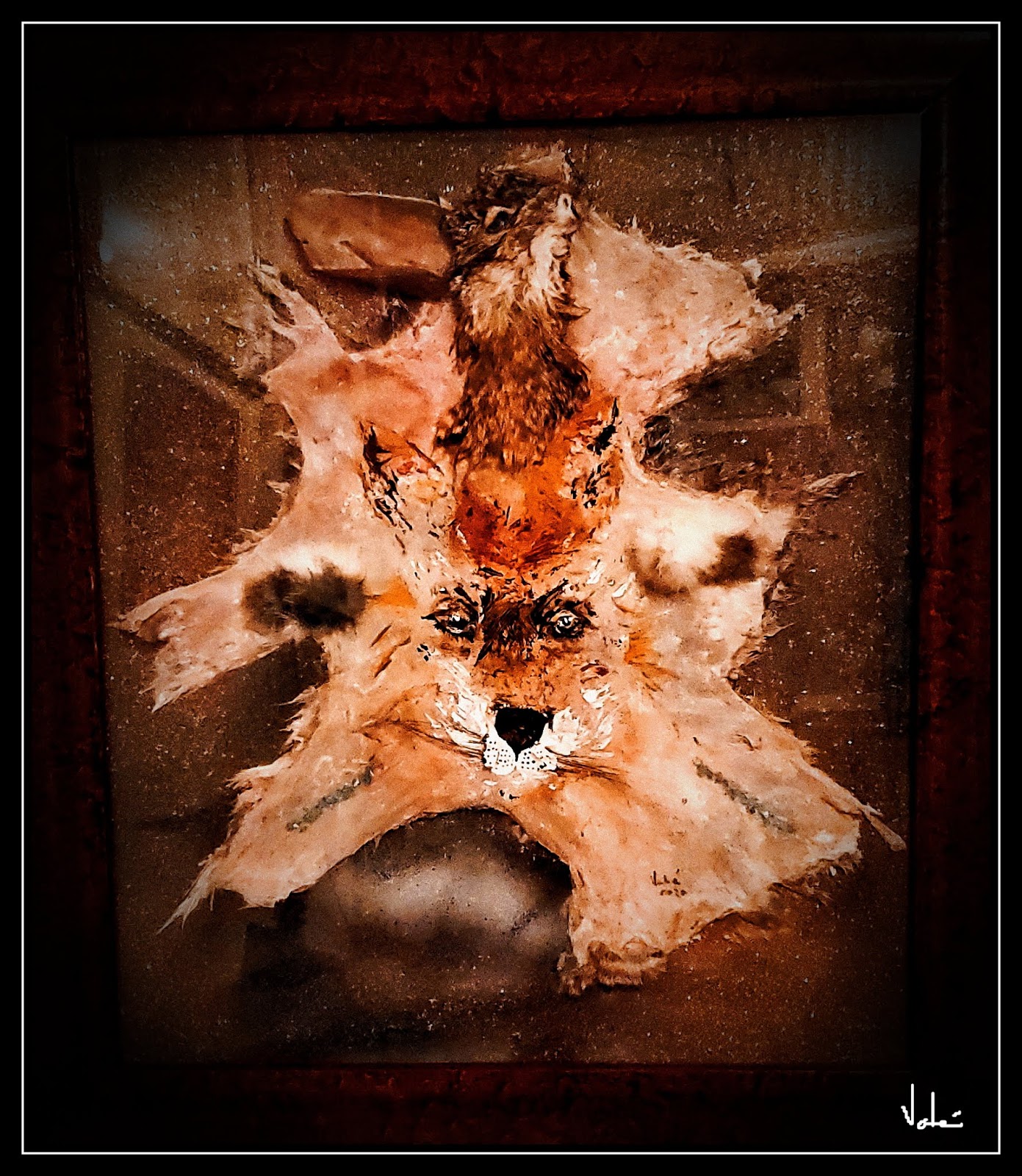The Roadrunner and the Squirrel in Native American and Norse Mythologies
During an early morning walk, my dog brought to me the jaw of a small scavenger. I am not sure what animal it is from but is bigger than a skunk jaw which he has the habit of digging out with much pride.
That bone and teeth have been in the ground for a
long while. So I cleaned it and put in tea to see if the bone would absorb some
colour.
It did, and when it was dry, I painted a Kokopelli
on it. It is hardly 3 inch long and I wondered what I can do with it.
I have a cache of such findings which, over time, seem
to find their way to a new project. Indeed, I had preserved part of the leg of
a young deer that either a mountain lion or coyote had left behind. Decided to
see if the leg and the jawbone can tell a story together as in Southwestern art
these two are commonly found together in building walking or talking sticks.
Here are a couple examples of my own work in that vein:
https://www.blogger.com/blog/post/edit/2835144881007910143/790306759528843205
https://www.blogger.com/blog/post/edit/2835144881007910143/8412183316940645297
This time I wanted to try something new. So here are
my starting materials – the deer leg, the jawbone, a few feathers, and a
petrified wood to be used as a stand. As always, when the project takes shape,
additional materials are needed.
The jawbone with its prominent canine tooth
immediately suggested a long necked bird when placed atop the deer leg. Ok, so
it will be a bird of some sort. I proceeded to build wings with some of the
feathers and immediately the short wings made me think of a roadrunner.
The Southwest and South Central U.S as well as
Mexico are home for the roadrunner. While many around the world know the
roadrunner through the Looney Tunes and Merrie Melodies where the hungry Wile
E. Coyote tries to catch the Road Runner but inevitably fails, the deserts of
the Southwest often get dusty when the roadrunner runs at 25 miles per hour.
But in the Native American mythology, the roadrunner
has a much more eminent place than its runner prowess. Pueblo tribes,
especially the Hopi attribute medicinal and spiritual powers to the fast
running bird which were never killed for food. Mexican Indians also believed in
the medicinal powers of the bird but sometimes did use its meat to prepare
medicine and treatment.
As I was reading about mythology associated with the
roadrunner, I came across a reference to the squirrel as another animal with a
place in mythology given its sure-footness and agility. In particular, Norse
mythology celebrates the squirrel called Ratatoskr, which as admired for its
ability to traverse difficult terrain and fleet-footed nature. Some cultures
even compare the squirrel to Hermes and Mercury for these same attributes. For
example in Native American cultures, the squirrel, like Hermes, is considered a
messenger to the people giving them warning about danger.
So, what can be better than uniting the squirrel and
the roadrunner in my new work where agility, speed, cleverness and helpfulness
to people were now the theme.
Here is a stock photo of the Southwestern large
roadrunner (copyright info at the end of this page):
To transform the jawbone into the neck of the
roadrunner and the canine tooth into its beak, I needed to emphasize the round
shape of the head as seen from the photo above. A small piece of rabbit fur and
a taxidermy glass eye did the job. I painted some of the feathers as well and
here is the detail:
As for the squirrel, the idea was to make it the
alter-ego of the roadrunner. So unless looking from the side one would see
either the bird or the rodent!
The last touch was inlaying Blue Topaz dust around
the tip of the deer hoof for that taste of the Southwest.
Here is the final form of my new project. I called
it “Chaparral
and Ratatoskr”:
August 17, 2020
© Vahé A. Kazandjian, 2020
According to Wikipedia, the copyright of the
roadrunner photo is recognized as:
By Wilson44691 - Own
work, Public Domain, https://commons.wikimedia.org/w/index.php?curid=4476220










Comments
Post a Comment